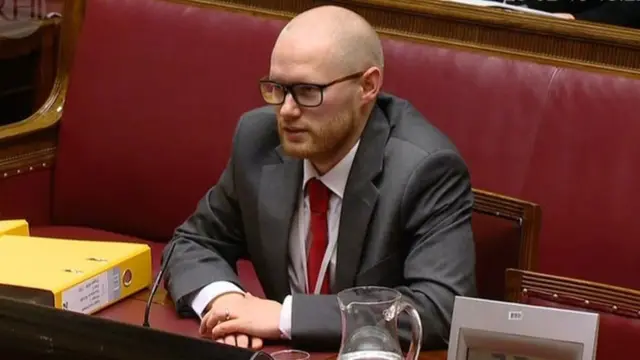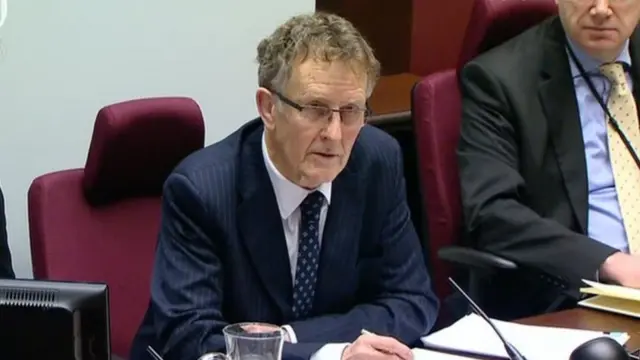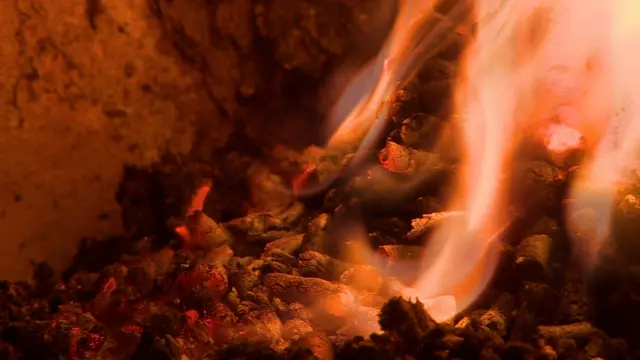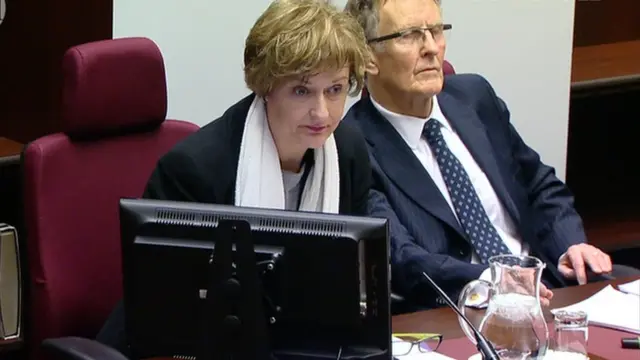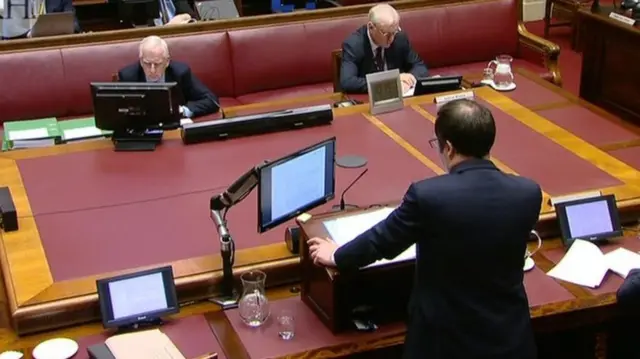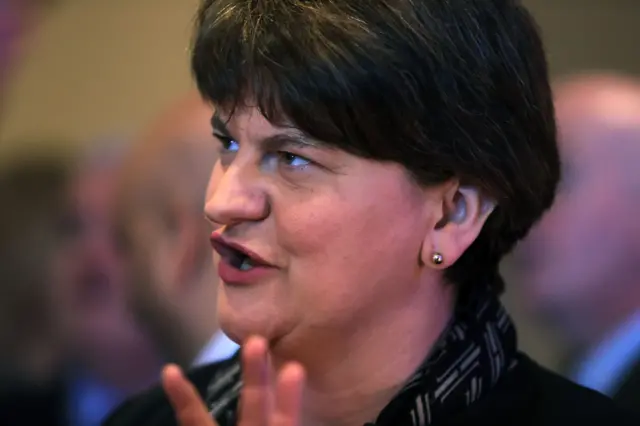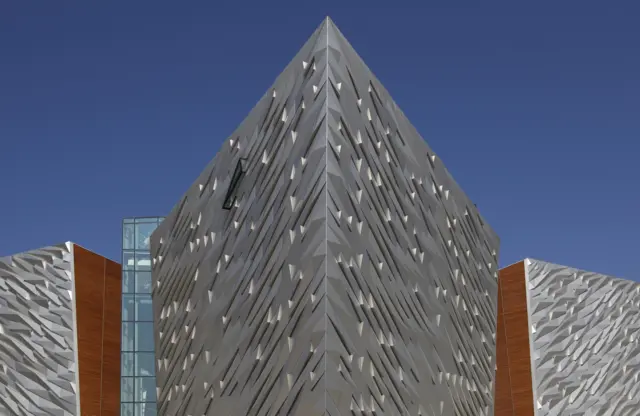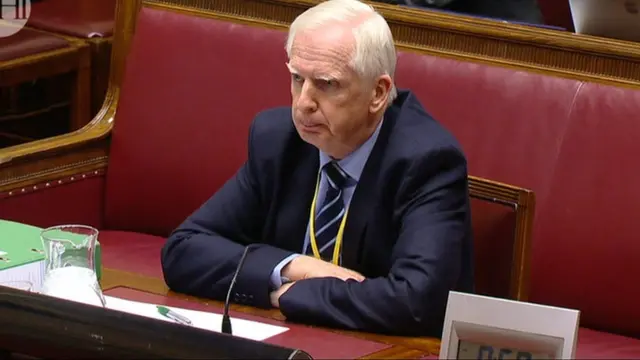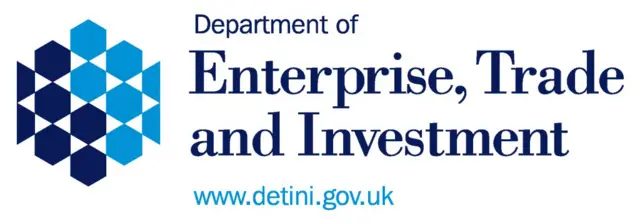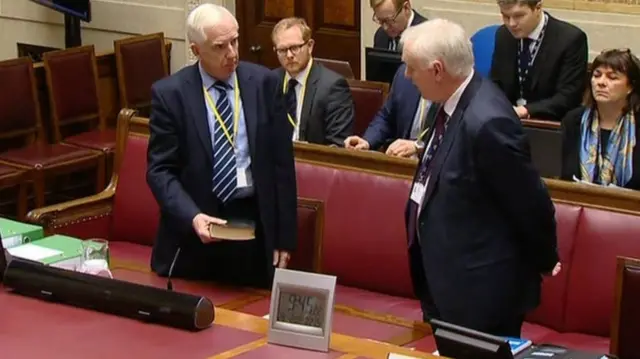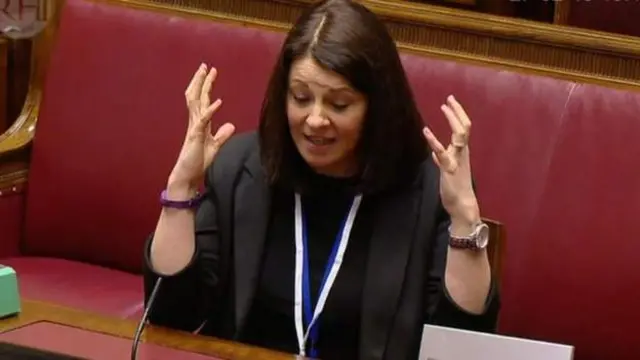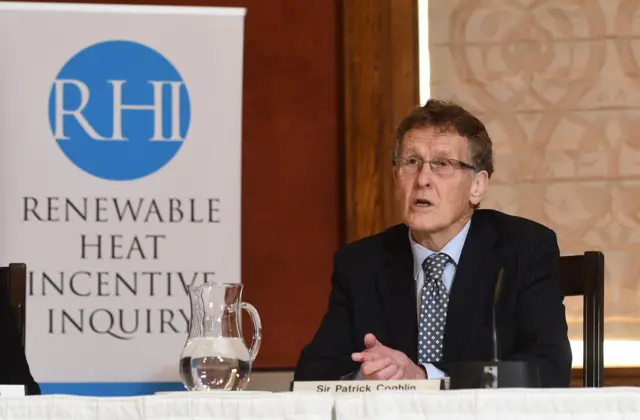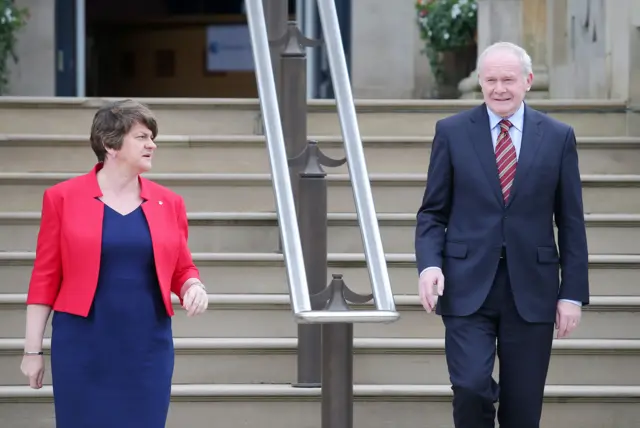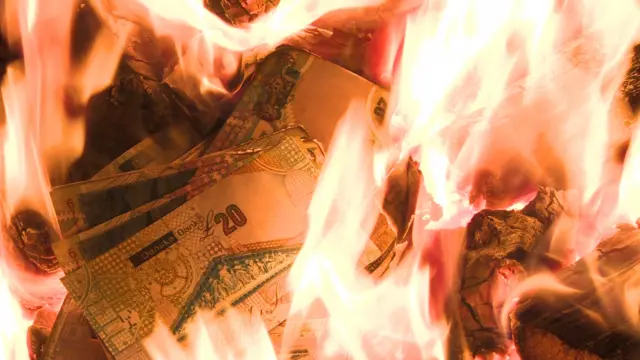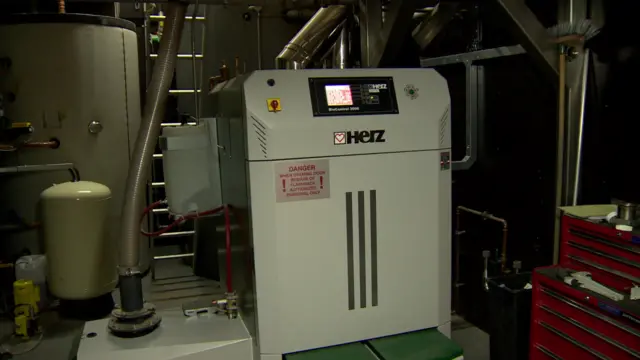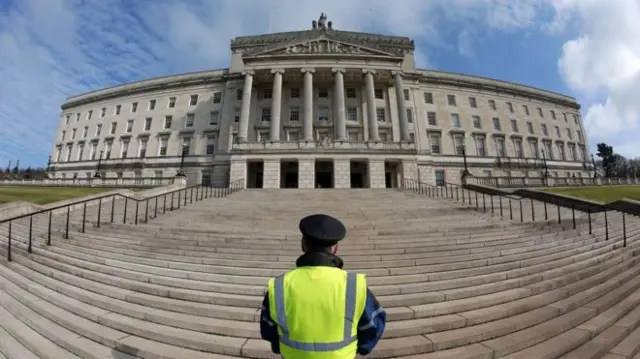'Predicted staffing issues all materialised'published at 11:20 GMT 28 February 2018
A register of risks associated with the RHI scheme, from March 2012, included "inadequate resources to deliver [the] project", which was assessed as a "high" probability of actually happening.
Among the consequences listed if that risk happened was a delay in the scheme's opening date, criticism from stakeholders, and - crucially - inadequate monitoring and auditing of the initiative.
 Image source, Getty Images
Image source, Getty Images"We now know that all of those consequences materialised," says Mr Lunny.
He explains that Mr Hutchinson has told the inquiry that from that point until the end of his time working on the scheme, no extra resources were diverted to the project.
Mr Thomson acknowledges that he was aware of the need for extra staff.
